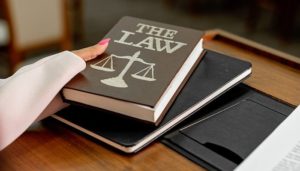
Ashley Guillard, a TikTok psychic, is facing a defamation lawsuit from Rebecca Scofield, a professor at the University of Idaho. Scofield alleges that Guillard falsely accused her of being involved in the murders of four University of Idaho students in November 2022.
Background
In November 2022, four University of Idaho students were murdered in their off-campus home. The murders shocked the community and sparked a nationwide investigation.
In December 2022, Guillard posted a series of TikTok videos in which she accused Scofield of being involved in the murders. Guillard claimed that she had received psychic visions that showed Scofield having an affair with one of the victims and then ordering the murders.
Scofield denied Guillard’s allegations and demanded that she remove the TikTok videos. Guillard refused, and Scofield filed a defamation lawsuit against her.
Defamation Law
Defamation is a legal term that refers to the act of making a false statement about someone that could damage their reputation. In order to win a defamation lawsuit, the plaintiff must prove that the defendant made a false statement, that the statement was published to a third party, and that the statement caused the plaintiff harm.
The Case Against Guillard
Scofield’s lawyers argue that Guillard’s TikTok videos were defamatory because they contained false statements about Scofield. They also argue that Guillard published the statements to a third party (TikTok) and that the statements caused Scofield harm by damaging her reputation.
Guillard’s Defense
Guillard’s lawyers argue that her TikTok videos are protected by the First Amendment’s right to free speech. They also argue that Scofield is a public figure and that she therefore has a higher burden of proof in order to win a defamation lawsuit.
Conclusion
The Ashley Guillard lawsuit is still ongoing. It is unclear whether Scofield will be successful in her defamation lawsuit. However, the case raises important questions about the intersection of free speech and defamation law.
FAQs
Q: What is the difference between slander and libel?
A: Slander is defamation that is spoken, while libel is defamation that is written.
Q: What are the elements of a defamation claim?
A: In order to win a defamation claim, the plaintiff must prove the following:
The defendant made a false statement about the plaintiff.
The statement was published to a third party.
The statement caused the plaintiff harm.
Q: What are the defenses to a defamation claim?
A: There are a number of defenses to a defamation claim, including:
Truth: The statement is true.
Opinion: The statement is an opinion, not a fact.
Fair comment: The statement is a fair comment on a matter of public interest.
Privilege: The statement is protected by a privilege, such as the attorney-client privilege or the reporter’s privilege.
Q: What is the First Amendment?
A: The First Amendment to the United States Constitution protects freedom of speech, religion, the press, assembly, and petition.
Q: What is the burden of proof in a defamation lawsuit?
A: The plaintiff in a defamation lawsuit has the burden of proving each element of their claim by a preponderance of the evidence. This means that the plaintiff must show that it is more likely than not that their claims are true.
Q: What are the potential consequences of losing a defamation lawsuit?
A: If the plaintiff is successful in their defamation lawsuit, the defendant may be ordered to pay damages to the plaintiff. The defendant may also be ordered to issue a retraction of the false statements.
References
- Scofield v. Guillard, Case No. 3:22-cv-00521-REP (D. Idaho): https://www.pacermonitor.com/public/case/47240254/Scofield_v_Guillard)
- Defamation Lawsuit Filed Against TikTok Psychic Who Accused University of Idaho Professor of Murder: https://www.spokesman.com/stories/2022/dec/23/university-of-idaho-professor-sues-tiktok-physic-m/
- University of Idaho Professor Sues TikTok Psychic for Defamation: https://www.spokesman.com/stories/2022/dec/23/university-of-idaho-professor-sues-tiktok-physic-m/
- TikTok Psychic Faces Defamation Lawsuit from University of Idaho Professor: https://emilydbaker.com/podcasts/tik-tok-psychic-sues-professor/






